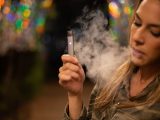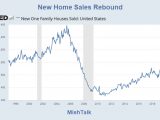TikTokers and K-pop Stans Are Claiming a Major Victory Against Trump. But Can They Keep it Up?
June 23, 2020 Off By Koh EweWhen U.S. President Donald Trump touched down in Tulsa over the weekend for his first major campaign event in months, supporters were anticipating a defiant new chapter in his so-called “Death Star” re-election campaign.
But hopes of a packed-to-the-gills venue thronging with adulating fans—the likes of which have become an unorthodox hallmark of the Trump presidency—were quickly dashed with one look at the crowd: fewer than 6,200 attendees turned out to fill the Bank of Oklahoma Center’s 19,200 seats.
This probably came as a surprise to campaign manager Brad Parscale, who just five days before had tweeted that there were over a million ticket requests for the rally.
It wasn’t long before it was revealed that teenage TikTok users and K-pop fans might have had a hand in Trump’s embarrassing weekend, raising questions as to whether online youth could be learning to utilize tactics more commonly associated with right-wing trolls to pursue a decidedly more progressive agenda.
A couple of weeks before Trump was set to give his speech in Tulsa, TikTok users had apparently begun registering for tickets to the rally with no intention of attending, all with the express aim of seeing a pathetically underfilled arena when Trump took the stage on June 20.
Among the TikTokers leading the prank was 51-year-old Mary Jo Laupp, who posted a video encouraging people who wanted to see the arena “barely filled or completely empty” to reserve tickets to the rally and then simply not show up. Her video quickly went viral, amassing over 713,000 likes.
K-pop stans, whose recent mobilization around the Black Lives Matter movement has proven them to be formidable social activists, were also roped into the effort to inflate ticket registrations.
One participant told the New York Times that many of those taking part in the ruse deleted their social media posts announcing their participation “after 24 to 48 hours” so that their plan to derail the rally wouldn’t leak into the more mainstream corners of the internet.
And when the rally turned out to be a spectacular flop, they took to social media to celebrate the big win, at times apparently incredulous of their own power.
When Parscale,Trump’s campaign manager, took to social media to claim that “radical protesters” had “interfered” with turnout, Democratic Congresswoman Alexandria Ocasio-Cortez, not one to shy away from calling out Trump on Twitter, pointed out the "radicals" weren't exactly the black-clad antifa thugs the term may have implied.
“Actually you just got ROCKED by teens on TikTok who flooded the Trump campaign w/ fake ticket reservations & tricked you into believing a million people wanted your white supremacist open mic enough to pack an arena during COVID,” she tweeted.
“Shout out to Zoomers,” she added, referring to the generation born in the late ‘90s and early ‘00s. “Y’all make me so proud.”
Trump’s campaign team, however, has refused to acknowledge the possibility it got trolled by a bunch of teenagers on an app best known for viral dances, instead blaming the poor turnout on media reports.
“Leftists and online trolls doing a victory lap, thinking they somehow impacted rally attendance, don’t know what they’re talking about or how our rallies work,” reads a press release from Parscale.
“The fact is that a week’s worth of the fake news media warning people away from the rally because of COVID and protestors, coupled with recent images of American cities on fire, had a real impact on people bringing their families and children to the rally.”
While it was unclear what “fake news” Parscale was referring to, the New York Times reported that six Trump staffers tested positive for COVID-19 ahead of the Tulsa rally.
While TikTokers didn’t directly deny Trump supporters their seats at the BOK Center—since the rally operated on a first come, first served basis—the impassioned digital natives appear to have wildly inflated ticket registrations, and contributed to sky-high expectations for a packed house.
Leading up to the Tulsa rally, Trump boasted of never having an empty seat at a rally.
An outdoor spillover stage was even built for Trump to speak to supporters who presumably wouldn’t be able to fit into the BOK Center, but it was dismantled when it became apparent that the arena was not going to be full, let alone overflowing with supporters.
With entire sections of seats at the BOK Center left empty, the disappointing turnout allegedly left Trump “furious,” NBC reported.
While autocrats and the alt-right have become notorious in recent years for pernicious trolling and using the levers of social media to undermine democratic causes, liberal Zoomers may be proving themselves equally adept at utilizing the same tools to progressive ends.
“The combination of TikTok users and K-pop’s massive online army can be a formidable foil to the internet trolls. There is no doubt that these are often able to achieve their objectives, with dazzling impacts,” Jennifer Yang Hui, an associate research fellow at Singapore’s S. Rajaratnam School of International Studies (RSIS), told VICE News.
However, social media activism isn’t without its limitations.
“Spectacular as the rise of social activism on platforms like TikTok may be, its effects may be short-lived,” Yang noted, describing online activism as “fierce but quick spurts of activities that fizzle out as soon as they’ve achieved what they wanted.”
According to Dr. Adrian Ang U-Jin, a research fellow at RSIS’s U.S. Programme, the Zoomers may have achieved a well-coordinated feat this time, but they remain limited in actual political participation.
“Young people might appear to be engaged with social activism on social media platforms, but it is their grandparents who actually go out to cast ballots on election day,” he said.
If nothing else, however, the events in Tulsa over the weekend proved TikTok is no longer just a mish-mash of catchy tunes and dance fads, and K-pop fandoms are capable of more than swooning over teen idols—up to and including delivering a stinging embarrassment to a notoriously thin-skinned sitting U.S. president.
The ease with which Zoomers can connect on new platforms means young would-be activists “may be able to bond together with the like-minded online,” Yang said.
“This also means that the youth will increasingly be a force to be reckoned with worldwide, shaping digital politics.”


